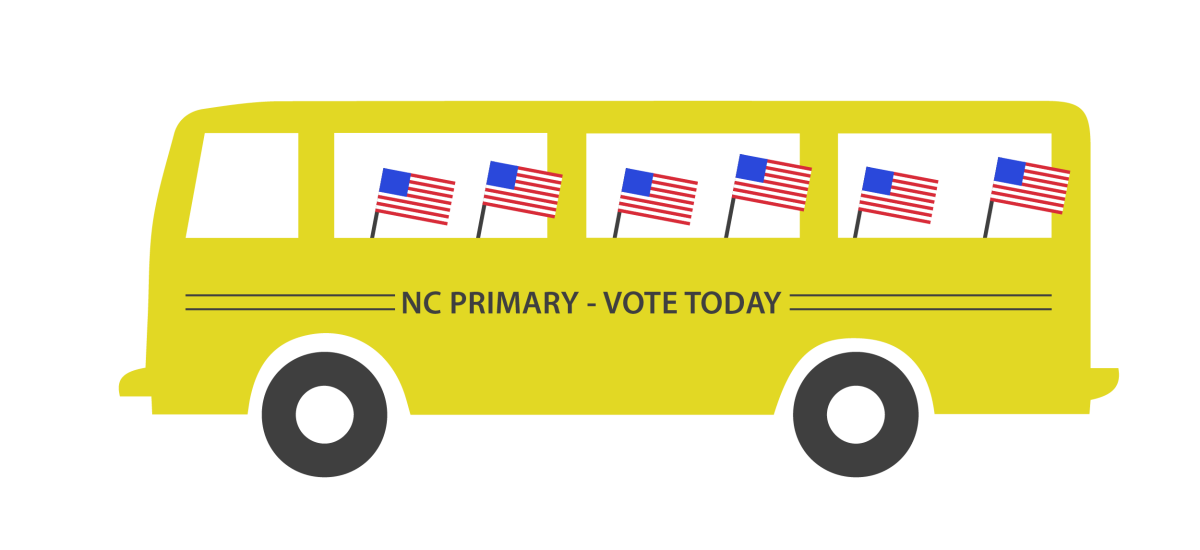The North Carolina primaries are today, and buses will be transporting students for free to and from campus and polling locations.
Buses will pick up students from Talley Student Union at the Reynolds loop from 9 a.m. to 8 p.m. Polling locations will open at 6:30 a.m. and close at 7:30 p.m. For students who used their on-campus address to register to vote, the polling location is at the Pullen Community Center on 408 Ashe Ave. In order to search where your polling site is located, visit nando.com/wherevote.
“Providing students with free transportation to the polls allows every NC State student a quick and time efficient way to be able to cast their vote,” said Logan Graham, a sophomore studying political science and a first-year senator for Student Government. “For students who don’t have cars, or even for students who don’t want to deal with the hassle of driving off campus during the middle of their day, the buses will allow students to still be able to vote without having to walk over a mile just to make it to their polling place. Voting should be made accessible for all North Carolinians and Student Government is committed to ensuring the all NC State students have an easy way to cast their ballot.”
Acceptable forms of identification have changed since the last presidential voting, and the laws regarding it are currently being contested in federal court. Opponents say it suppresses minority and youth votes.
A North Carolina driver’s license, learner’s permit or provisional license (these can be expired up to four years); a state identification card issued by the Division of Motor Vehicles; a veteran’s identification card issued by the U.S. Department of Veterans Affairs; a U.S. military identification card; an unexpired U.S. passport; a tribal enrollment card; an out-of-state driver’s license (as long as you registered within 90 days of the election) all count as acceptable forms of identification.
For those who do not have a photo ID, a provisional ballot can still be casted. At the polling site, a form will need to be signed that states why a photo ID could not be obtained and present a current voter registration card, or a form of ID with name and address, such as a utility bill, bank statement or paycheck, or give the last four digits of your Social Security number and birth date. Then the local elections boards will verify that information before counting the vote.
In case you forget to bring an ID, you can still vote using a provisional ballot, but you will have to go back and show your ID to the local board of elections in order to make your vote count.
If the provisional vote is not granted, the vote may end up in the discard pile. On the last day of early voting, 717 people had cast provisional ballots because they didn’t meet the requirements for the new voter ID laws. The counties that had the highest concentrations of provisional ballots were from counties with home addresses on or near a college campus. Those counties included Durham, Orange, Watauga and Wake.
“I am very concerned about North Carolina’s sharp and sudden turn to restrict the ease of voting for citizens in our state,” Graham said. “The recently enacted laws make it much harder for large populations of North Carolinians to vote, and they especially impact students in North Carolina. I’d love to see the early voting site we had on campus for the 2012 elections moved back to Talley for November’s election and for students to be able to use their NC State IDs to vote. By doing both, the burden placed on students to vote would be greatly reduced and students would no longer have to choose not to vote because the process is too complicated and/or time consuming.”








